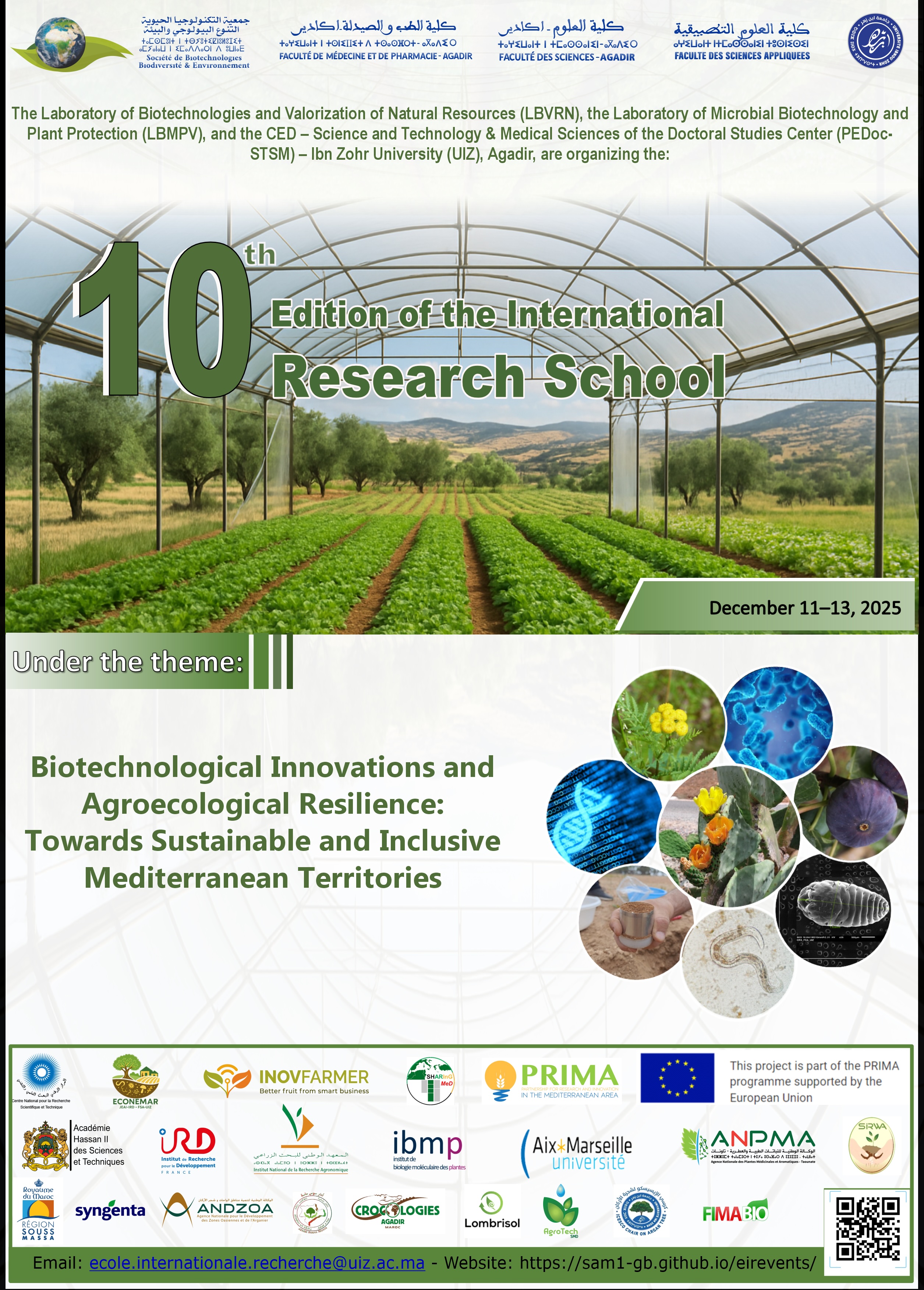
Since its creation in 2013, the International Research School (EIR) of Ibn Zohr University has established itself as a major scientific event promoting intergenerational exchange, advanced training, and the valorization of knowledge around major contemporary challenges: biodiversity, biotechnologies, territorial sustainability, and innovation in agroecology. For its 10th edition, the School is embarking on a new path shaped by a vision at the regional and Euro-Mediterranean levels, at a time when environmental, social, and agri-food transitions call for integrated, interdisciplinary, and territory-based approaches.
Morocco, with its strategic position at the Mediterranean-Atlantic interface and its exceptionally rich ecosystems, represents a reservoir of bioresources and a space of resilience in the face of global upheavals. It is home to remarkable biodiversity, including emblematic endemic species such as the argan tree. However, this natural wealth is now threatened by a combination of human and climate-induced pressures: agricultural intensification, soil degradation, pollution, habitat fragmentation, water scarcity, recurrent droughts, and extreme weather events.
In the face of these challenges, the development of scientific research focused on sustainable innovation through biotechnologies, integrated management of genetic resources (microbial, plant, and animal), and the co-construction of territorial solutions has become a strategic necessity. Morocco has engaged in this dynamic by adhering to major international agreements (such as the Convention on Biological Diversity and the Nagoya Protocol) and by launching the Green Generation Plan 2020–2030, which places sustainability, the valorization of natural capital, and youth inclusion at the heart of its agricultural and rural policies.
EIR 2025 is fully aligned with this trajectory, in resonance with the United Nations Sustainable Development Goals (SDGs) – particularly SDG 2 (Zero Hunger), SDG 12 (Responsible Consumption and Production), and SDG 15 (Life on Land).
Three key projects support the scientific vision of this edition:
SHARInG-MeD (PRIMA), which aims to co-develop regenerative agriculture strategies tailored to Mediterranean contexts by integrating soil sciences, agroecological practices, participatory dynamics, and social innovation through multi-stakeholder Living Labs;
InovFarmer.MED (PRIMA), focused on increasing the resilience of small farms in the face of global crises by enhancing the value chains of fig (Ficus carica) and cactus (Opuntia ficus-indica) as economic and cultural assets;
Eco-NEMAR (JEAI/IRD), which explores the integrated and sustainable management of nematodes and microbial communities in horticultural systems within the argan biosphere, with an innovative approach to soil and plant health.

